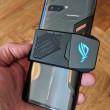Sprint
FCC Fines Carriers for Selling Your Location Data Without Consent
The FCC today announced fines totaling nearly $200 million against T-Mobile (and Sprint), AT&T, and Verizon, for illegally selling real-time customer location data to third parties without consent and without "reasonable safeguards". The fines follow a multi-year investigation started under the previous administration. Today's fines were first proposed in early 2020. T-Mobile and Verizon objected and were able to reduce their fines, to over $92 million (including Sprint) and almost $47 million, respectively. AT&T is fined more than $57 million.
T-Mobile Sets End Date for Sprint LTE Network
T-Mobile has confirmed that it will shut down the legacy Sprint 4G LTE network by June 30, 2022. Customers that will need new SIM cards and/or phones to use T-Mobile's own network are being notified directly by T-Mobile.
T-Mobile's Faster Mid-Band 5G Now Covers 140 Million People
As part of its quarterly earnings report today, T-Mobile provided an update on its 5G rollout and Sprint customer migration. The company's faster "Ultra Capacity" 5G network — the bulk of which relies on 2.5 GHz mid-band radio frequencies — now covers 140 million people and is on track to cover 200 million by the end of 2021. T-Mobile's Ultra Capacity 5G includes redeployed 2.5 GHz radio spectrum (band 41) it gained when the company merged with Sprint, as well as mmWave for even faster speeds in select urban areas. The company also offers "Extended Range 5G" which uses lower frequencies and offers lower data speeds (closer to 4G). That service now covers 295 million people across 1.6 million square miles. T-Mobile claims that is 4x more than Verizon's 5G service area and 2x more than AT&T's. T-Mobile also announced that 20 percent of former Sprint customers have been moved to the T-Mobile network, and those users represent 50 percent of Sprint customer traffic.
FCC Fines T-Mobile $200 Million for Sprint Abuse of Lifeline Program
T-Mobile and the FCC have agreed to settle an FCC investigation started in September 2019 alleging that Sprint defrauded the US government by collecting approximately $8 million per month in Lifeline subsidies for 885,000 ineligible accounts. Lifeline helps low-income consumers afford basic phone and internet service. Sprint participated in the Lifeline program under the Assurance Wireless brand. T-Mobile acquired Sprint earlier this year. As part of the settlement, T-Mobile will pay $200 million, and agree to additional controls to prevent such fraud in the future. Although this is by far the largest such settlement, the FCC fined other companies for similar abuse of the Lifeline program in 2013, 2015, 2016, and 2018.
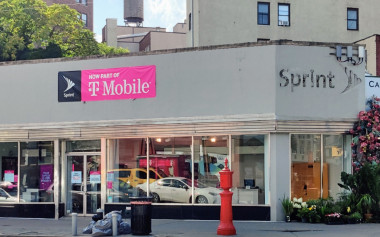
Sprint Brand Officially Retired
The Sprint brand is no more, as T-Mobile today completes its effort to bring former Sprint stores and other assets under the T-Mobile umbrella with re-branding. Most Sprint stores closed early last night to give employees time to conduct the T-Mobile make-over. The Sprint web site is also gone; sprint.com now re-directs to t-mobile.com. Customers previously with Sprint can now access their accounts via t-mobile.com. The two companies legally completed their historic merger on April 1st. T-Mobile has not yet announced its timeline for phasing out legacy Sprint technology such as its CDMA network.
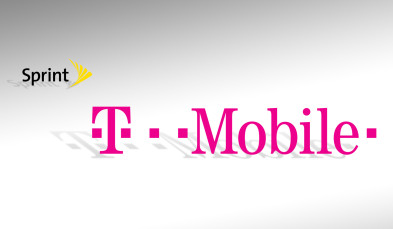
Sprint Brand Goes Away August 2nd
T-Mobile today revealed that August 2nd is the date it will officially retire the Sprint brand and unify the recently-merged company under the T-Mobile brand. Sprint stores will be rebranded "with a fresh coat of magenta paint". And next week, T-Mobile will announce "new, aggressive offers ... saving people money".
T-Mobile Makes All Scam/Robocall Protection Free
T-Mobile launched a new initiative today called ScamShield. The program includes a suite of several technologies designed to combat scam calls and robocalls, all of which are now free for all T-Mobile, Metro, and Sprint customers. Advanced caller-ID is included, which identifies many callers even if they aren't in your contact list. This feature was previously called Name ID and incurred a charge of $4/month/line with many plans. T-Mobile also detailed its own proprietary technology which uses machine learning to identify suspicious callers at the network level. T-Mobile claims this technology performs 30% better than the offerings of competitors like Verizon. T-Mobile's list of suspicious numbers is updated every six minutes. All customers can choose to have all such calls automatically blocked today, for free, by dialing #662#. Starting July 24th, T-Mobile and Metro customers can download a free app called ScamShield that offers a number of additional options and features for managing such calls. Sprint's Call Screener app is also free. The new initiative also includes features for protecting and managing the privacy of your personal phone number. PROXY# is a free second phone number you can give out instead of your real, main number. On incoming calls, an indicator on your phone shows which number is being called, and the second number has its own voicemail inbox. Finally, NumberChange is a new option that lets you get a whole new primary number once, for free, for a "clean slate".
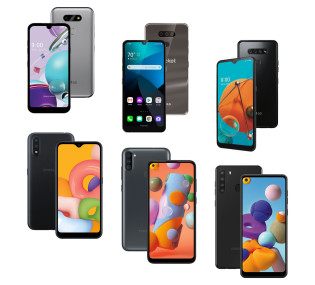
Samsung and LG Launch New Affordable Phones on US Carriers
US carriers have launched a flurry of new entry-level phones from LG and Samsung in recent weeks. The phones include three new models from each of the two manufacturers. They range in price from $60 to $260.
- LG's new most affordable phone goes by many names and ranges in price from $60 to $160. It's offered by just about every carrier except Verizon. T-Mobile, Sprint, and Metro offer it as the Aristo 5. Boost offers it as the Tribute Monarch. U.S. Cellular offers it as the K8x. All of those versions come with 32 GB of storage. Only AT&T's version comes with just 16 GB of storage, which they offer from AT&T Prepaid as the Phoenix 5, or from Cricket as the Fortune 3. Oddly, Cricket also offers this phone as the Risio 4. The Risio 4 and K8x have a front camera that's downgraded from 5 to 3 megapixel. Key specs in common include a 5.7-inch HD display with notch, MediaTek Helio P22 processor, 2 GB RAM, and a 3,000 mAh Battery. It also has a 13-megapixel main camera, dedicated wide-angle camera, and a rear fingerprint reader.
- LG Harmony 4: Currently available only from Cricket (for $140), this step-up model has a larger display (6.1-inch), larger battery (3,500 mAh), and more RAM (3 GB). It also has USB-C and a better front camera. Regulatory filings indicate it may also come to Verizon prepaid and TracFone using the Sprint network.
- LG K51: Already available from T-Mobile, Metro, and Boost, this model is now available from Verizon for $168. Compared to the Harmony 4, it offers an even larger display and battery. It's powered by a MediaTek Helio P22 processor.
- Samsung A01: First launched on Verizon in April, Samsung's most affordable phone is now available from AT&T, Cricket, and Metro, for $115, $60, and $160, respectively. It has USB-C and fast charging, but no fingerprint reader.
- Samsung A11: A big step up from A01, this $180 phone is now available from AT&T and Verizon. It will launch with Boost on July 21st at a limited-time price of $130. It has a 6.4-inch HD display with a hole-punch design, 4,000 mAh battery, fast charging, fingerprint reader, and a dedicated wide-angle camera.
- Samsung A21: Now available from Verizon, T-Mobile, Metro, Sprint, and Boost. While the standard price is $250, Metro is charging $260 while Boost is currently offering it for $200. It has a similar display and battery compared to the A11, but has upgraded cameras, MediaTek Helio P35 processor, 3 GB RAM, and NFC.

Dish Closes Acquisition of Boost Mobile, Unveils New Plans
T-Mobile US and Dish Network today announced that they have completed the previously-announced sale of Boost, the prepaid arm of Sprint. Dish now owns the Boost brand and takes responsibility for its 9.3 million customer accounts, hundreds of employees, and thousands of independent retailers. Boost customers are promised a smooth transition thanks to a seven-year agreement for Dish to use the T-Mobile network while Dish builds its own 5G SA (stand-alone) network. Dish unveiled two new plans for Boost customers. The "$hrink-It!" plan offers lower rates over time, to encourage customers to stay with Boost. It's similar to a plan Boost offered six years ago, as well as Verizon's new prepaid plans. It starts at $45/month for 15 GB of data, with a $5/month discount after three on-time payments, and an additional $5/month discount after six total on-time payments. The other new plan offers 10 GB of data plus unlimited talk and text for $35/month. Both plans will be available starting tomorrow, July 2nd. Dish also unveiled a new logo for Boost that blends the existing Boost logo with the Dish logo. Dish paid $1.4 billion for Boost, the same amount originally agreed upon when the deal was first announced. The sale was required by the government in order for T-Mobile to win approval for its deal to merge with Sprint. Dish has started building its own 5G SA network, having recently signed infrastructure deals with Fujitsu, Altiostar, and Mavenir.
T-Mobile's REVVL 4+ Will Be Made by TCL
Regulatory filings for a new phone from TCL bear the name "REVVL 4+" and describe a phone supporting all of the network bands unique to the T-Mobile/Sprint network. Since 2017, T-Mobile has offered a series of white-label phones under its own "T-Mobile REVVL" brand. Most of the first and second generation REVVL phones were made by TCL. Last year's REVVLRY and REVVLRY+ were the third generation, and the first to be made by Motorola. The filings reveal very few details about the phone, except the FCC approval confirms it will have NFC, and the Bluetooth SIG approval confirms it will have Bluetooth 5.0. The Bluetooth approval for this phone is shared with the TCL 10L, indicating the REVVL 4+ may be based on the 10L. The TCL 10L is a mid-range Android phone with a Snapdragon 665 processor, 48 megapixel main camera, wide-angle camera, and "Super Bluetooth" supporting up to 4 simultaneous connections.
T-Mobile Extends T-Mobile Tuesdays to Sprint Customers
T-Mobile's rewards program — T-Mobile Tuesdays — is now available to Sprint customers. Upcoming offers include 50 Starbucks Stars and three free months of Postmates Unlimited.

Samsung Galaxy A71 5G Coming to All Major US Carriers
Samsung's new mid-range 5G phone, the Galaxy A71 5G, will be available from T-Mobile and Sprint this Friday for $600. Samsung has also made it official that both Verizon and AT&T will offer the phone "later this summer", and that it will also be available unlocked. We broke the news about the Verizon version of the A71 5G a month ago. T-Mobile and Sprint will offer the Galaxy A71 5G in a "Prism Cube Black" finish. The A71 5G is powered by a Qualcomm Snapdragon 765 chip, has a 6.7-inch full-HD Super AMOLED display, 4,500 mAh battery, 25W fast charging, quad rear cameras including a 64 megapixel main camera, and 6 GB of RAM. T-Mobile also announced today that it will carry many of the other models in Samsung's latest A-series of phones. The slightly cheaper Galaxy A51 5G will come to the T-Mobile, Sprint, and Metro brands this summer. The company will also offer the entry-level A01, A11, and A21, at prices ranging from $160 to $250.
Dish Having Second Thoughts About Buying Boost
Dish is trying to re-negotiate its deal to buy Boost Mobile, according to reporting from Fox Business. The US Department of Justice mandated that Sprint sell its Boost prepaid business as part of the company's deal to merge with T-Mobile. The agreed-upon purchase price was $1.4 billion, but Dish is now balking at that number. T-Mobile would need to find another buyer, and a major private equity firm may be interested. Dish was supposed to close the Boost purchase by June 1st. The DoJ has its own final deadline of July 1st for the deal.
T-Mobile Launches Triple-Band "Layer Cake" 5G in NYC
T-Mobile has launched enhanced 5G service in New York City that uses three very different frequency bands to provide a unique blend of broad coverage and high speeds, according to a tweet from Neville Ray, the company's President of Technology. The network includes band 71 (600 MHz) for broad 5G coverage, although with speeds only marginally faster than 4G. This is the same band T-Mobile has deployed for "nationwide" 5G coverage. It also includes mmWave 5G, which offers the highest speeds but with coverage limited to the densest areas of the city. Finally, it includes band 41 (2.5 GHz), which offers something in-between. Band 41 is the new addition to the company's 5G network in NYC. Band 41 was owned by Sprint, so the recent merger of the two companies made today's launch possible. Of T-Mobile's current phone lineup, only the Samsung Galaxy S20+ and S20 Ultra can access all three bands.
T-Mobile Starts Expanding 5G Using Sprint Assets
T-Mobile is beginning to launch 5G network upgrades that utilize assets of the former Sprint network. In Philadelphia, customers can now access 5G using both low-band (band 71) and mid-band (band 41) radio spectrum, offering better mix of coverage, capacity, and speed. T-Mobile will make this upgrade next in New York City, where the company also operates a mmWave 5G network, so customers there will be able to access 5G in all three classes of radio frequencies, offering an even better experience. T-Mobile is also launching low-band 5G in Detroit, St. Louis, and Columbus, Ohio today. Finally, the Sprint-branded Samsung Galaxy S20 will gain access to T-Mobile's "nationwide" low-band 5G network later this month.

Samsung Intros New A-Series Phones, Including 5G Models
Samsung has a slew of new phones coming to the US in its more-affordable A-series, including one launching tomorrow for $110, and a 5G model launching this summer for $500.
- Galaxy A01: One of Samsung's most affordable phones at $110. Specs include a 5.7-inch HD display, 13 megapixel main camera, depth camera, 3,000 mAh battery, fast charging, 2 GB of RAM, 16 GB storage, and a memory card slot. Verizon will launch the A01 tomorrow, April 9th, and the FCC has also approved versions specifically designed for AT&T and T-Mobile.
- Galaxy A51 (4G): A mid-range model selling for $400. Specs include a 6.5-inch full-HD Super AMOLED display, quad rear cameras, including a 48 megapixel main camera, 12 megapixel wide camera, plus macro and depth cameras, 32 megapixel selfie camera, 4,000 mAh battery, fast charging, in-display fingerprint reader, 4 GB of RAM, 128 GB storage, and a memory card slot. Launching tomorrow, April 9th. Verizon and Sprint will launch the A51 this week, and the version approved by the FCC for the US has excellent support for all US 4G networks.
- Galaxy A51 5G: A 5G version of the A51, with similar specs, except a larger battery (4,500 mAh) and more RAM (6 or 8 GB). Will sell for $500.
- Galaxy A71 5G: Similar to the A51 5G, but with a larger display (6.7-inch), better main camera (64 megapixel) and faster charging (25W instead of 15W). Will sell for $600.
- Galaxy A21: A $250 phone with a 6.5-inch HD display, 16 megapixel main camera, wide camera, macro camera, 4,000 mAh battery, fast charging, rear fingerprint reader, 3 GB of RAM, 32 GB of storage, and a memory card slot.
- Galaxy A11: A $180 phone with a 6.4-inch HD LCD display, 13 megapixel main camera, wide camera, 4,000 mAh battery, fast charging, rear fingerprint reader, 2 GB of RAM, 32 GB of storage, and a memory card slot.
CA Regulator Insists Sprint/T-Mobile Merger Cannot Proceed in CA
The California Public Utilities Commission yesterday issued an order clarifying that it has not yet granted approval for Sprint and T-Mobile to merge in California, and the merger cannot proceed in that state until it does so. The Commission is scheduled to vote on the merger on April 16th.

Sprint is Officially No More
T-Mobile has officially completed its merger with Sprint. For the moment, the merger has little effect on customers, but "Sprint" lives only as a brand of T-Mobile, not a separate company. As of today, Sprint is no longer trading under its own symbol on the stock exchange. Current Sprint customers can keep their plans for the near future. As a condition of regulatory approval, T-Mobile has committed to not raise prices for three years. But over time, the Sprint brand will be replaced by T-Mobile. The companies have been making technical preparations for the merger since it was announced. Most new phones introduced by Sprint and T-Mobile in the past year are capable of accessing both networks, ensuring a smoother transition. The companies have already announced expanded roaming for Sprint customers on the T-Mobile network, for Sprint customers with those newer phones. While all major US wireless carriers are deploying 5G in both sub-6 GHz and mmWave radio frequencies, the new T-Mobile will have the key advantage of access to mid-band frequencies in the form of Sprint's unique band 41 (2.5 GHz). 5G in this band can offer a unique balance between high speeds (like mmWave) as well as broad coverage (like other sub-6 bands). The company claims that combining the two networks into one will allow the company to offer "14 times more capacity in the next six years than T-Mobile alone has today", "average 5G speeds up to eight times faster than current LTE in just a few years", and "$43 billion in synergies for all shareholders", mostly from "reducing redundant cell sites and rapidly deploying spectrum and other technologies more efficiently." The new company announced plans to invest "$40 billion into its network, business and more over the next three years." The company also announced that Mike Sievert will replace John Legere as T-Mobile CEO effective today, one month earlier than previously announced.
Across US Telecom: Late Fees Waived, No Disconnects
At the request of the FCC Chairman, essentially all US internet and telephone providers have pledged to waive all late fees, and not disconnect any service due to inability to pay bills, for the next 60 days. This includes Verizon, AT&T, T-Mobile, Sprint, US Cellular, and Comcast. The Pledge is designed to help people economically impacted by the COVID-19 pandemic, and everyone needing additional connectivity as they work and study from home. Companies agreeing to the FCC's pledge are also committed to opening up to everyone their wi-fi networks that were previously reserved for paying customers. On top of the pledge, both T-Mobile and Sprint are temporarily giving unlimited data to all customers on metered data plans, as well as 20 GB of mobile hotspot data.
T-Mobile, Verizon, Sprint Temporarily Closing Many Retail Locations
T-Mobile is closing 80% of its stores until at least March 31st, including all indoor mall locations, to help slow the spread of the COVID-19 virus. Sprint will close 71% of its stores, including all indoor mall locations. Both closures take effect today. Verizon is also "reducing the number of Verizon stores that remain open", although it was not more specific. T-Mobile will leave at least one store open within a 30-minute drive of most customers in each market. Sprint is leaving open "its most highly critical retail stores". T-Mobile and Sprint are also reducing the hours their remaining stores are open. Most T-Mobile stores will now be open 10am – 6pm. Sprint's new temporary store hours are 11am – 6pm Mon-Sat, and 12pm – 5pm on Sundays.
FCC Fines Carriers for Selling Customers' Location Data
The FCC has announced proposed fines totaling over $200 million against the nation's top four wireless carriers for selling customers' location data to third parties for years with little regard for customers' privacy or consent. T-Mobile is being fined $91 million, AT&T: $57 million, Verizon: $48 million, and Sprint; $12 million. "The size of the proposed fines for the four wireless carriers differs based on the length of time each carrier apparently continued to sell access to its customer location information without reasonable safeguards and the number of entities to which each carrier continued to sell such access." The fines will only be finalized after the companies have a chance to respond; the FCC could ultimately settle on lower fine amounts.
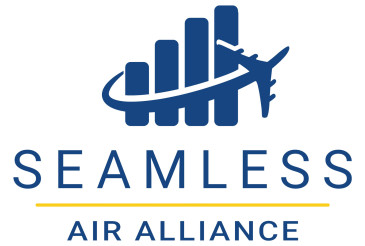
New Standard Aims to Make Wi-Fi and Cellular Ubiquitous on Planes
The Seamless Air Alliance today released Seamless Release 1.0 (SR1), the first-ever standard for inflight connectivity hardware and software. The new standard supports all current connectivity technology, including multiple types of satellite systems as well as both Wi-Fi and cellular technologies within the plane cabin. By standardizing modular hardware, inevitable technology upgrades and changes are cheaper for airlines. This removes much of the risk to airlines when installing inflight connectivity systems on planes, which previously required a commitment to certain provider and/or technology stack. This is expected to accelerate the rollout of such systems. On the passenger side, the standard is designed to make the connection process more seamless and more secure. It supports Hotspot 2.0, which lets mobile devices automatically and securely connect to Wi-Fi networks, authenticating using their cellular carrier account. The Seamless Air Alliance was created by founding members Airbus, Airtel, Delta Air Lines, OneWeb, and Sprint.
New York AG Rules out Appeal of T-Mobile+Sprint Merger Decision
New York State Attorney General Letitia James issued the following statement today regarding the recent court decision to allow the merger of T-Mobile and Sprint: "After a thorough analysis, New York has decided not to move forward with an appeal in this case." The merger is now expected to proceed quickly. T-Mobile claims the merger may close as soon as April 1st.
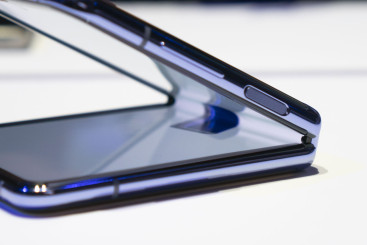
Hands On with the Samsung Galaxy Z Flip
Samsung's second foldable phone takes a different approach: instead of folding larger, it folds smaller, much like Motorola's new razr foldable. It's cheap for a foldable, but still quite pricey. Sprint and AT&T will carry it in the US. After the Galaxy Fold debacle, is this one more durable? How does it feel to fold? What about the crease? Will it last? More than with most phones, you need a hands-on report to give you an honest assessment of this unique phone. Here it is.
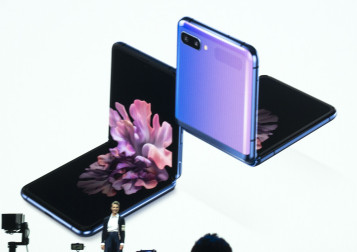
Samsung Unveils Galaxy Z Flip, a New Clamshell-Style Foldable
Samsung today announced the Galaxy Z Flip, its newest foldable phone. The phone forms a tall slab of a smartphone when open, but closes to a small square with a small outer touch-screen. It uses a new, ultra-thin flexible glass material to cover the flexible 6.7-inch screen that bends in the middle, The glass is designed to fold up to 200,000 times. "Flex Mode" enables a special split-screen interface in select apps when the phone is opened to an angle less than fully open. This can be used to set the phone down on a flat surface to take a long-exposure photo without a tripod. Purchase of the phone includes YouTube Premium. The phone will sell for $1,380 starting February 14th. It will be available in three color-shifting hues: Mirror Purple, Mirror Black, and Mirror Gold. In the US, Sprint and AT&T will offer it starting this Friday in Mirror Purple and Mirror Black, in "limited quantities".

T-Mobile + Sprint Merger Can Proceed, Rules Judge
A multi-state anti-trust lawsuit to stop the merger of Sprint and T-Mobile has failed. New York Attorney General Letitia James issued a statement saying "There is no doubt that reducing the mobile market from four to three will be bad for consumers, bad for workers, and bad for innovation, which is why the states stepped up and led this lawsuit. ... As we review our options, including a possible appeal, Americans should continue to hold the companies to account for their promises." If the states do no not appeal, the merger is likely to be completed as soon as April 1, 2020, according to a statement from the two companies. The ruling was issued today by the Hon. Victor Marrero of the United States District Court for the Southern District of New York. New York and California led the coalition of 14 state Attorneys General opposing the merger. The FCC and DoJ approved the merger last year. Some assets from Sprint — including the Boost Mobile brand and customers — will be transferred to Dish, which has promised to use them build its own new 5G network.
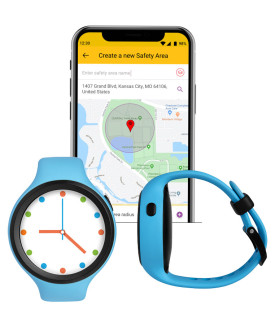
Sprint Intros New Watch for Kids
Sprint today announced WatchMeGo, a new watch device for kids that offers two-way communication and location tracking. The watch offers GPS, two-way voice messaging, and can receive text messages from parents. The companion app for parents (available for both Android and iOS) lets them see their child's location and set up geo-fenced "safety zones" so they're notified when their child enters and exits specified areas. Location history data is saved for 14 days. Parents can be alerted when the watch is taken off. The watch is rated IP67 for dust and water resistance, has a durable Gorilla Glass face, and has an SOS button that will instantly alert parents. It has a 400 mAh battery, LTE, and a large 1.39" touch screen. The watch also has Bluetooth and a music player that can play music loaded over USB. The unique charger clips around the side of the watch. WatchMeGo is available starting today for $144. Service costs $10/month with auto-pay.
Sprint Offering Everyone Cheap Samsung Screen Repair for Two Weeks
Sprint is holding an unusual sale: $49 screen repair for many recent Samsung Galaxy phones, regardless of whether you're a Sprint customer. The offer excludes the most recent S10 series and newer Note models, but includes the Galaxy S7, S8, S8+, S9, S9+ and Note 8. The same repair from Samsung costs well over $200. If the screen is unrepairable, Sprint is offering a trade-in deal of $150 toward a new Sprint phone. The offer is limited to one device per customer and the sale ends February 9th.
Sprint Kills Off Virgin Mobile
Sprint is shutting down its Virgin Mobile prepaid brand. Starting the week of February 2nd, Sprint will move current Virgin Mobile customers to Sprint's other prepaid brand, Boost Mobile. According to a Sprint statement to FierceWireless, "In most circumstances, customers can keep their current phone and will receive a comparable or better Boost Mobile service plan with no extra cost". All of Sprint's business plans are currently in a kind of limbo as the company awaits a court verdict on whether it will be allowed to merge with T-Mobile. The pending merger has put a pause on all major investments and strategic moves, which in turn has hurt business units such as Virgin Mobile.
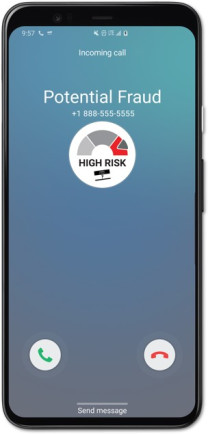
Sprint Launches Basic Spam-Call Protection for Free
Sprint has joined T-Mobile, Verizon, and AT&T in offering a free service with basic protection against fraud and spam callers. Like the free services already offered by other carriers, Sprint's new Call Screener Basic can block the highest-risk fraud calls, and identify other likely spam calls as they ring. Sprint's new free service also include caller-ID for businesses. A premium version, called Call Screener Plus, runs $3/month and includes advanced caller-ID for personal lines, plus options to automatically block lower-risk spam calls. Users of Sprint Call Screener will receive a free 15-day trial of Sprint Call Screener Plus. Android phones sold by Sprint should already have the app. iPhone users can download the app from the App Store.
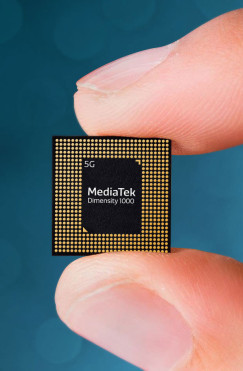
MediaTek Details its First 5G SoC for High-End Phones
MediaTek has revealed that its first SoC with integrated 5G modem and high-end processor will be called the Dimensity 1000. The company revealed the first set of details on the chip in May. Now that it has a name, MediaTek has revealed additional details of the SoC. It's fabricated using the latest 7nm process and is designed for "premium and flagship" phones. The 5G modem component supports SA (stand-alone) and NSA (non-stand-alone) 5G networks, as well as DSS (Dynamic Spectrum Sharing) that allows 4G and 5G to efficiently share the same frequency band. It also supports 5G carrier aggregation, which enables downlink speeds up to 4.7 Gbps and seamless handovers as users move around. It also supports dual 5G SIMs, which MediaTek claims is a first. The processor part of the chip includes a five-core image signal processor (ISP) to power cameras up to 80 megapixel at 24fps. Its AI processor assists with camera functions, offering features like multi-frame video HDR, which MediaTek claims is another first. The chip also supports Full HD+ displays with refresh rates up to 120Hz, and 2K+ up to 90Hz. The Dimensity 1000 only supports 5G in sub-6 GHz frequency bands, not mmWave. By the end of this year, AT&T, T-Mobile, and Sprint will all offer sub-6 GHz 5G networks with broad coverage. The first devices powered by the Dimensity 1000 will ship in the US by the end of this year, which is earlier than previously announced. The new Dimensity brand will include a whole line of chips with integrated 5G.
Nevada Pulls Out of T-Mobile / Sprint Merger Suit
Nevada has reached a settlement with T-Mobile on the terms of its proposed merger with Sprint. This comes after Texas announced a similar settlement this morning. Colorado and Mississippi previously reached their own settlements. That leaves 14 attorneys general still suing to stop the merger on antitrust grounds. As part of its deal with Nevada, T-Mobile is bound to:
- Keep certain promises it made at the start of the month, such as a $15/month data plan with 2 GB of data, and a $25/month plan with 5 GB of data, with additional data added each year. New in the Nevada settlement is a commitment to keep these low-price plans for at least six years.
- Provide internet access for low-income families with small children. (Another promise made earlier this month, now made legally binding.)
- Donate $30 million to charities in Nevada chosen by the Attorney General.
- Keep an existing call center in the state with 450 employees for at least six years.
- Offer all current employees of both companies comparable jobs when the merger closes.
- Meet certain 5G coverage requirements.
Texas AG Settles on T-Mobile / Sprint Merger
Texas Attorney General Ken Paxton today announced a settlement with T-Mobile over its proposed merger with Sprint. This removes Texas from the list of states suing to stop the merger on antitrust grounds. Paxton was the only conservative attorney general participating on the suit. The settlement stipulates that Texans have access to rate plans as good or better than current plans for the next five years. The settlement also includes promises on 5G coverage, and guarantees current employees will be able to keep their jobs when the merger is executed. 15 attorneys general are still suing to stop the merger. The suit is led by New York AG Letitia James and California AG Xavier Becerra. Still signed on to the suit are the AGs for Connecticut, Hawaii, Illinois, Maryland, Massachusetts, Michigan, Minnesota, Nevada, Oregon, Pennsylvania, Virginia, Wisconsin, and the District of Columbia.
Sprint Offers Discount to People in Select Fields
Sprint recently launched Sprint Perks, a collection of plan discounts available to certain groups. The main offer is Sprint's top plan (Unlimited Premium) for the price of its middle plan (Unlimited Plus), a discount of $10/month/line. The discount is available to anyone employed in government, education, military, or healthcare. It's also available to small business owners and employees of specific other companies that have partnered with Sprint. In total, 130 million Americans are eligible. Sprint Unlimited Premium includes Amazon Prime, Hulu, and Tidal. It also offers 100 GB of mobile hotspot data and unlimited roaming in Canada and Mexico. The mid-tier Unlimited Plus plan does not include Amazon Prime and has less hotspot data. Unlimited Premium, normally $80/month, is $70/month with this offer. A second line runs $50/month. For lines 3-5 on a family plan, Sprint is running limited-time special pricing of just $10/month/line through January 2021. The special, limited-time discount on lines 3-5 is open to everyone, and varies by plan. Lines 3-5 are free for those on the cheaper Unlimited Basic plan, and $20/month/line for those paying full price for the Unlimited Premium plan (those not eligible for Sprint Perks.) Sprint Perks includes several other discounts and special offers, such as 50% off for military families, and special offers for members of AAA, American Airlines AAdvantage, Walgreens Balance Rewards, and credit unions.
T-Mobile Baits State AGs for Merger Approval with Promises of Cheap, Free 5G Service
T-Mobile today announced plans to offer three new programs offering 5G service for free to certain groups, or cheaply for everyone else. The company is promising to launch the programs when and if it is allowed to merge with Sprint. Although the federal government has approved the merger, over a dozen state attorneys general are suing to stop the merger on antitrust grounds, claiming the move would lead to higher prices for consumers. The new programs are:
- Connecting Heroes Initiative: Free unlimited wireless service — including 5G data, talk, and text — for all first responders in the country. This would include every public and non-profit state and local police, fire and EMS first responder agency in the US. T-Mobile is promising to offer this program for 10 years, spending "up to $7.7 billion" on it.
- Project 10Million: In an attempt to address "the homework gap", T-Mobile will offer free mobile hotspots and 100 GB/year of free data to low-income families with children and no home internet access. The company promises to spend $700 million equipping 10 million households with free hardware, and spend $10 billion offering free service for five years.
- T-Mobile Connect: A $15/month prepaid plan available to everyone that offers 2GB of high-speed data plus unlimited talk and text. A step-up plan would offer 5GB of data for $25/month. T-Mobile also commits to increase the data limit of each plan by 0.5 GB every year for the next five years.
T-Mobile Launching 5G Nationwide on December 6
T-Mobile has announced December 6th as the launch date for its low-band 5G network, which will use band 71 (600 MHz). The nationwide network will cover more than 200 million Americans and more than 5,000 cities and towns across the country. Unlike mmWave 5G networks that have limited coverage and building penetration, T-Mobile's low-band 5G network uses a frequency band already used for 4G, and will thus offer the same coverage and properties as the 4G network. Sprint is pursuing a similar strategy with its 5G network, and AT&T plans to add low-band to its 5G network in the coming months. T-Mobile has also launched mmWave 5G in parts of Atlanta, Cleveland, Dallas, Las Vegas, Los Angeles, and New York. T-Mobile will offer three 5G phones. The Samsung Galaxy S10 5G only supports the mmWave networks. The Samsung Galaxy Note10+ 5G and OnePlus 7T Pro 5G McLaren only support the new low-band network launching Dec. 6.
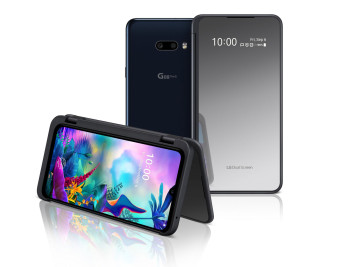
Sprint Reveals LG G8X Launch Details
Sprint has revealed its launch details for the new LG G8X ThinQ with its unique Dual Screen accessory. As we previously reported, the companies are offering a free Dual Screen accessory via rebate. This promotion is available until January 9th to any Sprint customer (new or existing) that leases or purchases a G8X. The free Dual Screen will ship from LG within six weeks. Sprint is offering the LG G8X for $750. Special pricing is available to new customers, existing customers that are upgrade-eligible, and customers adding a line. Those customers can get the G8X for $15/month on a Sprint Flex Lease (18 months to upgrade or 24 months to own.) The G8X ThinQ will be available for pre-order from Sprint on Nov. 1st, with full availability on Nov. 8. The G8X has a Snapdragon 855 chip, standard and wide-angle rear cameras, 32-megapixel selfie camera, 4,000 mAh battery, in-display fingerprint reader, 3.5mm headphone jack, IP68 water resistance, NFC, and wireless charging. The snap-on Dual Screen sports a full-HD OLED screen identical to that on the G8X. It also has an extra "cover" display on the outside. The Dual Screen hinge folds a full 360º.
Big Four Carriers Join Forces to Accelerate RCS in US
Verizon, AT&T, T-Mobile and Sprint have formed a new joint venture to accelerate the adoption of Rich Communications Services (RCS) and ensure it works seamlessly across US and global networks. The venture is called the Cross Carrier Messaging Initiative (CCMI) and "is working to develop and deploy the standards-based, interoperable messaging service starting with Android and expected in 2020." RCS is an existing open industry standard for advanced messaging, designed to replace SMS and MMS. It supports high-quality media, read receipts, typing indicator, and more. Google has been pushing RCS heavily in the past two years, but US adoption has been slow due to delayed carrier deployments.
T-Mobile's 5G Phones Can Support Sprint 5G
When T-Mobile launches low-band 5G later this year, the two phones that support it will also be capable of supporting Sprint's already-launched mid-band 5G network, should the two companies be allowed to merge. The OnePlus 7T Pro 5G McLaren and Samsung Galaxy Note 10+ will both support 5G in bands 71 (T-Mobile's 600 MHz) and 41 (Sprint's 2,500 MHz). Those two phones do not, however, support 5G in the mmWave bands, which T-Mobile has launched in several cities. T-Mobile does sell the Samsung Galaxy S10 5G which supports its mmWave 5G network but not the upcoming low-band network. When T-Mobile launches low-band 5G this year, it will cover 200 million people, far more than any other US 5G network to date.
Sprint 5G Expands to Cover 16 Million People
Sprint today announced that its 5G coverage has expanded to cover 16 million people in the nine cities where it has launched 5G so far, up from 11 million a few months ago.








